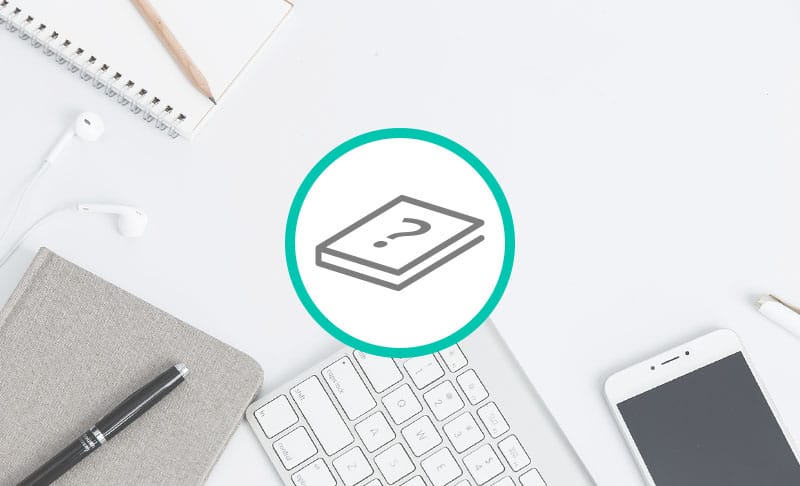
How to Deal with a Debt Collections Agency
Dealing with a collections agency is never fun. These companies specialize in recovering unpaid debts and they can use some pretty aggressive tactics to recoup those losses.
Bills go unpaid for all kinds of reasons. An unexpected career change or an illness can make it hard to keep up with your financial commitments; or a simple case of moving house and forgetting to change your address can lead to missed payments. Regardless of how your debt got sent to collections, it’s important to deal with the situation head-on. Having a collections file opened in your name can hurt your credit score and even leave you open to a lawsuit.
How debts end up in collections
Your unpaid bills end up at a collections agency when your creditor — the company, bank or person you owe money to — gives up on trying to collect what is due. This usually happens when a debt is more than 180 days delinquent.
At this point, a creditor can hire an agency to collect the money on their behalf or they can take it as a loss by selling the debt to a collector and charging it off. You’re still on the hook for payment, the balance will just go to a different company.
How does it affect credit?
When a charge-off is reported to a credit bureau it gets added to your credit report as a derogatory mark, which can lower your score significantly. This can stay on your report for up to seven years after the first missed payment.
The negative effects don’t stop there. If the debt remains unpaid, the collections agency that purchased it can start reporting the continued missed payments to the credit bureaus. This is bad news because your payment history makes up 35% of your credit score.
What to do when a collections agency comes calling
Debt collectors make money on their persistence. Ignoring the phone calls and wishing the problem would go away won’t help your cause.
Be as proactive as possible by following these eight steps for dealing with a collections agency:
- Find out who is calling
- Know your rights
- Request validation
- Dispute errors
- Stop the phone calls
- Prioritize your debt
- Negotiate a payment plan
- Get everything in writing
Find out who is calling
You should keep good notes during all of your interactions with a collections agency. When a debt collector calls for the first time write down the following information:
- The name and phone number of the person calling
- Which collections agency they work for
- The name of the company they are collecting money for
- How much you owe and when you stated owing it
Stay short on details and let them know that you’ll call them back once you’ve had a chance to check your accounts and verify the claim. You don’t want to agree to pay a debt that isn’t yours or fall victim to a collections scam.
Know your rights
Some debt collectors may try to scare you by threatening fines and jail time if you don’t pay up. These intimidation tactics may actually be illegal thanks to the laws governing how collections agencies can operate in Canada.
For instance, they are only allowed to call you between 7:00 a.m. and 9:00 p.m. Monday through Saturday and can’t contact you on Sundays and holidays. It’s also illegal for collectors to mislead your or ask for more than you owe, harass your family or friends and threaten repossession if they don’t have the authority to do so.
Manitoba’s Consumer Protection office has a thorough list of collection do’s and don’ts in the province.
Request validation
Don’t pay a dime until you have confirmation that the debt belongs to you. Ask the collections agency to send you a debt validation letter outlining how much you owe and to whom. If that’s still not enough information you can write a letter to the collector asking for verification of the debt — this has to be sent within 30 days of first contact.
Dispute errors
If the debt isn’t yours or there are errors with the request, bring it up with the collections agency. Clearly communicate why you dispute the debt and provide as much proof to support your claim. If the collector is working on behalf of a creditor, go right to the source and bring the dispute up with the creditor directly.
Stop the phone calls
You have a say in how collections agencies contact you. If their phone calls are becoming invasive, you can send a registered letter requesting no further phone calls. Include your mailing address and request that all future contact happens via snail mail. This doesn’t solve the debt issue, but it does stop the phone calls.
Prioritize your debt
Not all debt is created equal. While an unpaid phone bill or credit card statement might be easier to let slide, foregoing payments on a mortgage or auto loan can lead to serious repercussions like foreclosure or repossession. If you have multiple outstanding debts make sure you tackle the most important first.
Negotiate a payment plan
By the time a debt is sent to collections, most creditors are willing to strike a deal to get at least some of their money back. This can give you the upper hand in negotiating how much you’re willing and able to pay back.
Offer a payment plan based on how much you can realistically afford to pay. You can also offer a lump sum that’s less than the full amount to see if they’ll bite. If they go for it, get confirmation of the agreement before you send any money.
Get everything in writing
A solid paper trail can be your best friend if the issue ever ends up in court — however, this usually doesn’t happen because it often costs a collections agency more to sue than the amount they’re trying to collect.
Put all your disputes in writing and get written confirmation of any agreements made or changes to your account. Stay organized and keep copies of any correspondences, from emails to physical letters.
The best way to avoid dealing with collections agencies is to set yourself up with a manageable monthly budget. The loan experts at Birchwood Credit Solutions can help you determine what a reasonable vehicle payment is, based on your monthly income. Take a few minutes to fill out our online form, and you’ll receive instant confirmation on your car loan pre-approval.
Related Posts:



